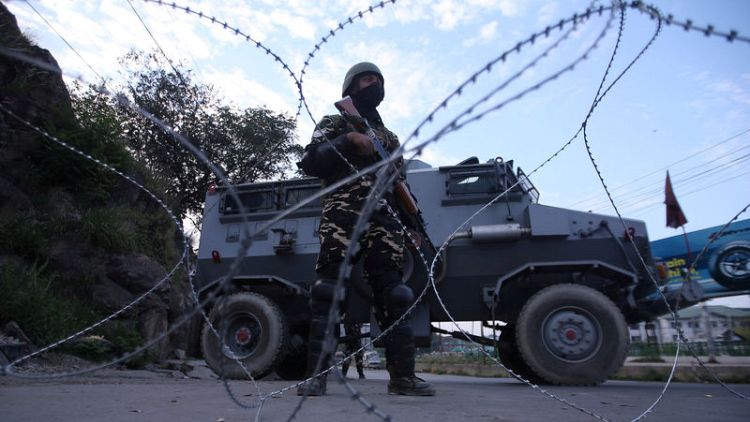NEW YORK (Reuters) - The United States hopes to see rapid action by India to lift restrictions it has imposed in Kashmir and the release of detainees there, the senior U.S. diplomat for South Asia said on Thursday.
Alice Wells, the acting assistant secretary of state for South Asia, referred to a plan laid out by Indian Prime Minister Narendra Modi for restoring political life in Jammu and Kashmir after India last month removed the decades-old autonomy it had enjoyed under India's constitution.
"I think we are interested in knowing the next steps," she told reporters. "We hope to see rapid action in the lifting of restrictions and the release of those who have been detained."
Wells added that "a lowering of rhetoric would be welcome, particularly between two nuclear powers."
Muslim-majority Kashmir has long been a flashpoint between nuclear-armed India and Pakistan. Both countries rule parts of Kashmir while claiming it in full. Two of the three wars they have fought have been over it.
Wells spoke after U.S. President Donald Trump met separately with both Modi and Pakistani Prime Minister Imran Khan on the sidelines of the U.N. General Assembly in New York.
On Tuesday, Trump urged Modi to improve ties with Pakistan and "fulfil his promise to better the lives of the Kashmiri people," the White House said.
The previous day Khan had urged Trump in a meeting to use U.S. influence to help end India's "siege" of the volatile territory.
In its clampdown in the Indian-controlled part of Kashmir, which has a Muslim-majority, India flooded the territory - already one of the world's most militarised zones - with troops, imposed severe restrictions on movements, and cut all telephone, mobile phone and internet connections. Thousands of people were arrested.
New Delhi has since eased some of the curbs, although no prominent detainees have been freed and mobile and internet connections remain suspended.
Trump this week reiterated that he would be willing to mediate between India and Pakistan over Kashmir. Wells said Modi had made clear he was not seeking mediation.
(Reporting by Humeyra Pamuk and David Brunnstrom; editing by Jonathan Oatis)
